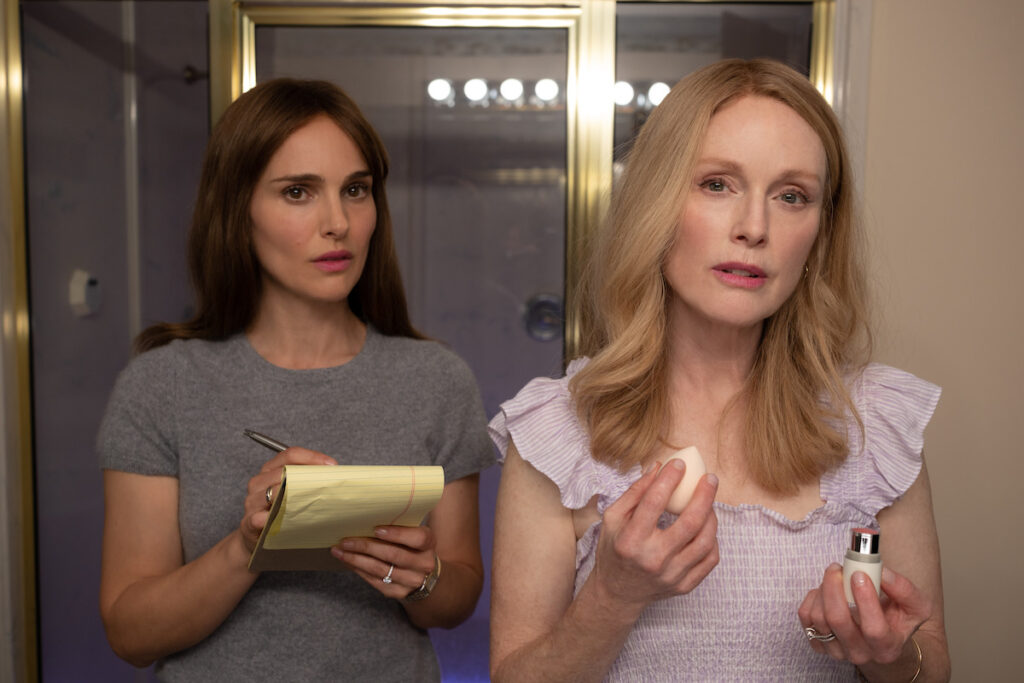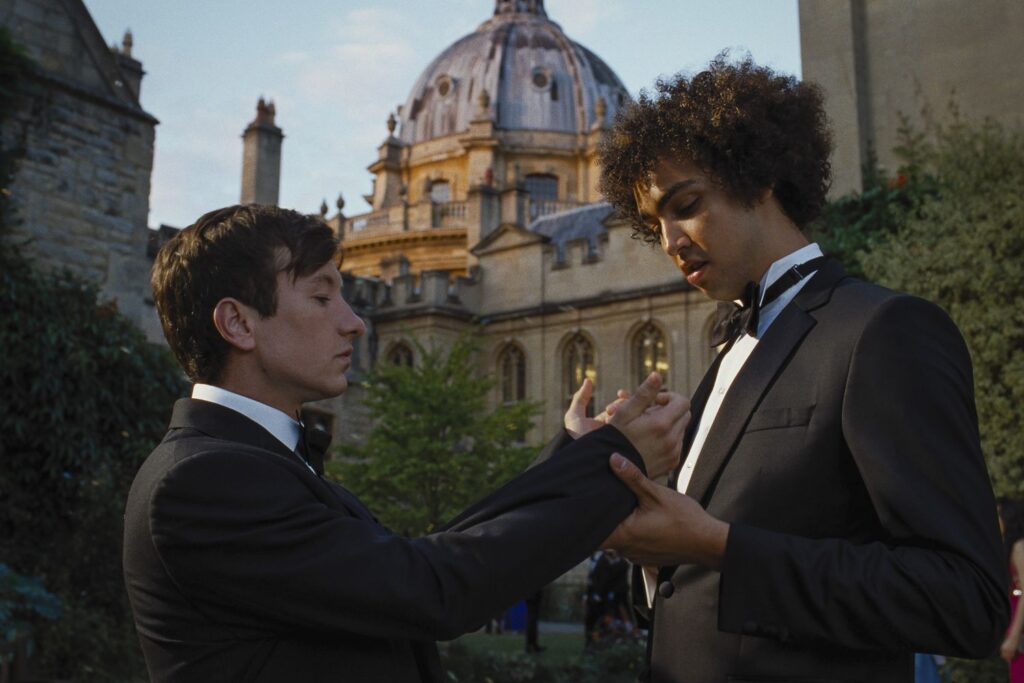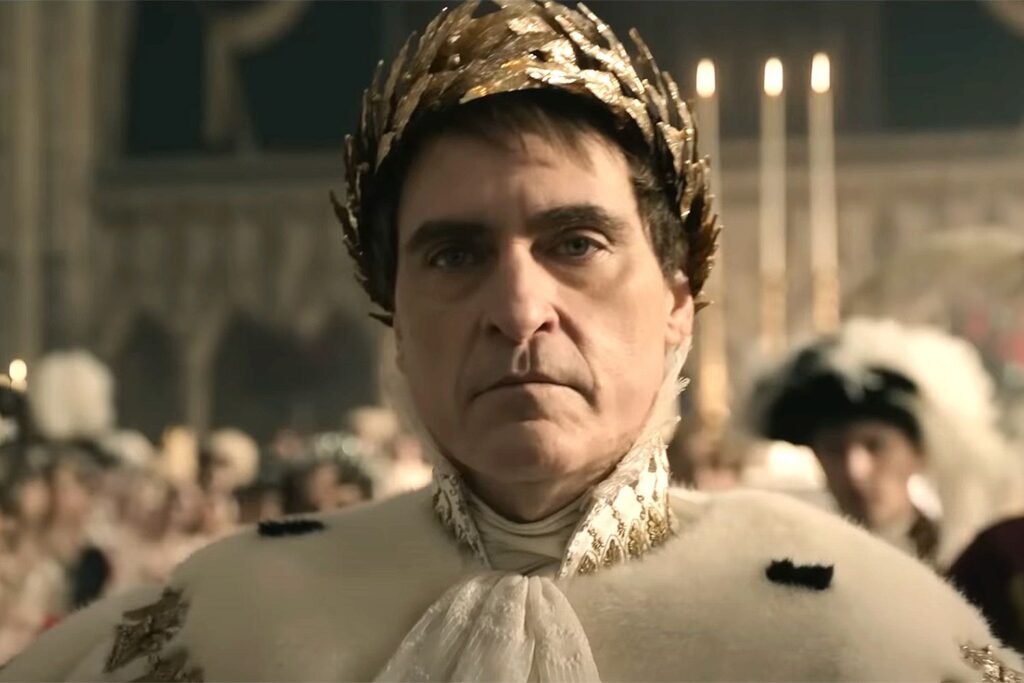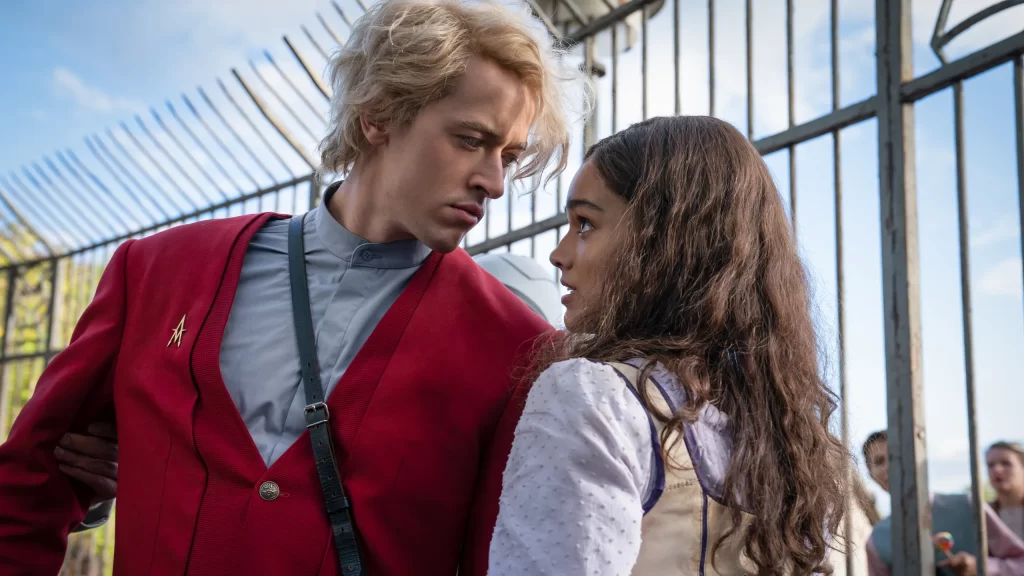Eileen: That Pretty Red Mess
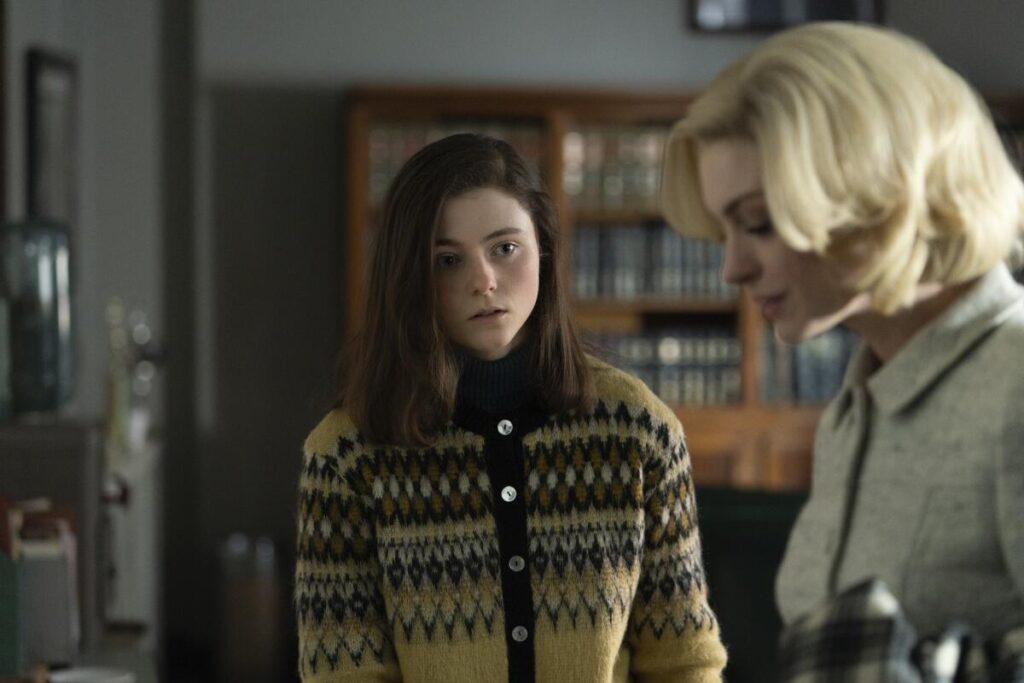
Smoke gets in more than just your eyes in Eileen; it fills up your lungs and seeps into your pores. Directed by William Oldroyd from a script by Luke Goebel and Ottessa Moshfegh (adapting the latter’s novel), this sly and engrossing psychological thriller wields fog like a haunted-house barker, cloaking its characters and vehicles in clouds of swirling vapor. Seductive imagery aside, the omnipresent haze is a fitting device for a movie that obscures its intentions, priming you for a queasy study of obsession before pivoting into a nightmare of a different sort.
This isn’t to imply that Eileen, in its bold strokes, is especially novel or even surprising. Its titular heroine, played with supple intensity by Thomasin McKenzie, is a familiar type: a loner whose existence is so mundane, she can scarcely give voice to her repressed desires. Eileen works at a juvenile detention center in Nowheresville, Massachusetts, where she mindlessly frisks female visitors and shuffles inmates through corridors. On her evening commute, she stops by the liquor store; when she arrives home at her ramshackle house, she places the fresh bottles at the feet of her drunken father (Shea Whigham), collecting the day’s empties without comment. She’s less a wallflower than a smear of taupe. Read More

